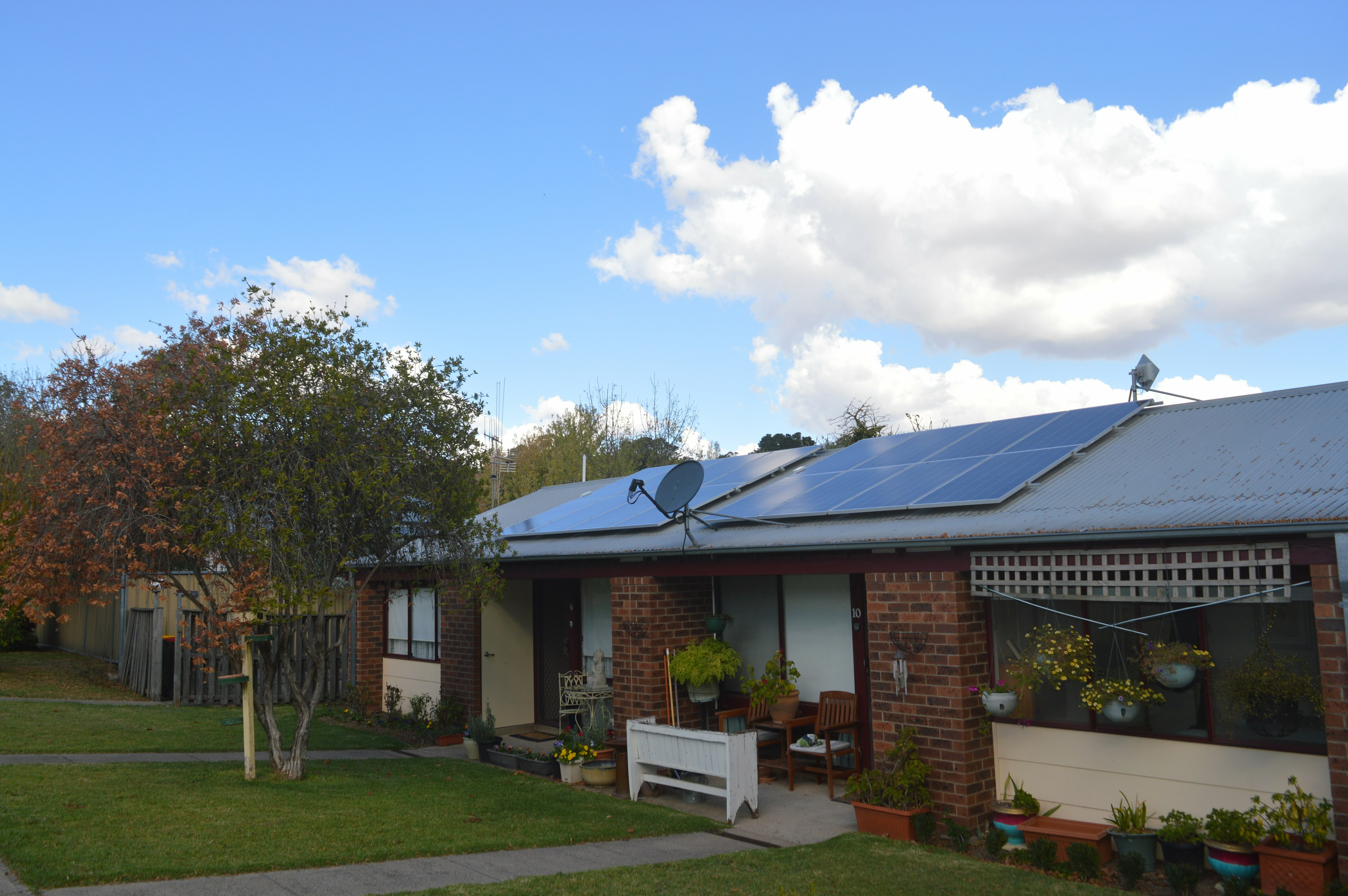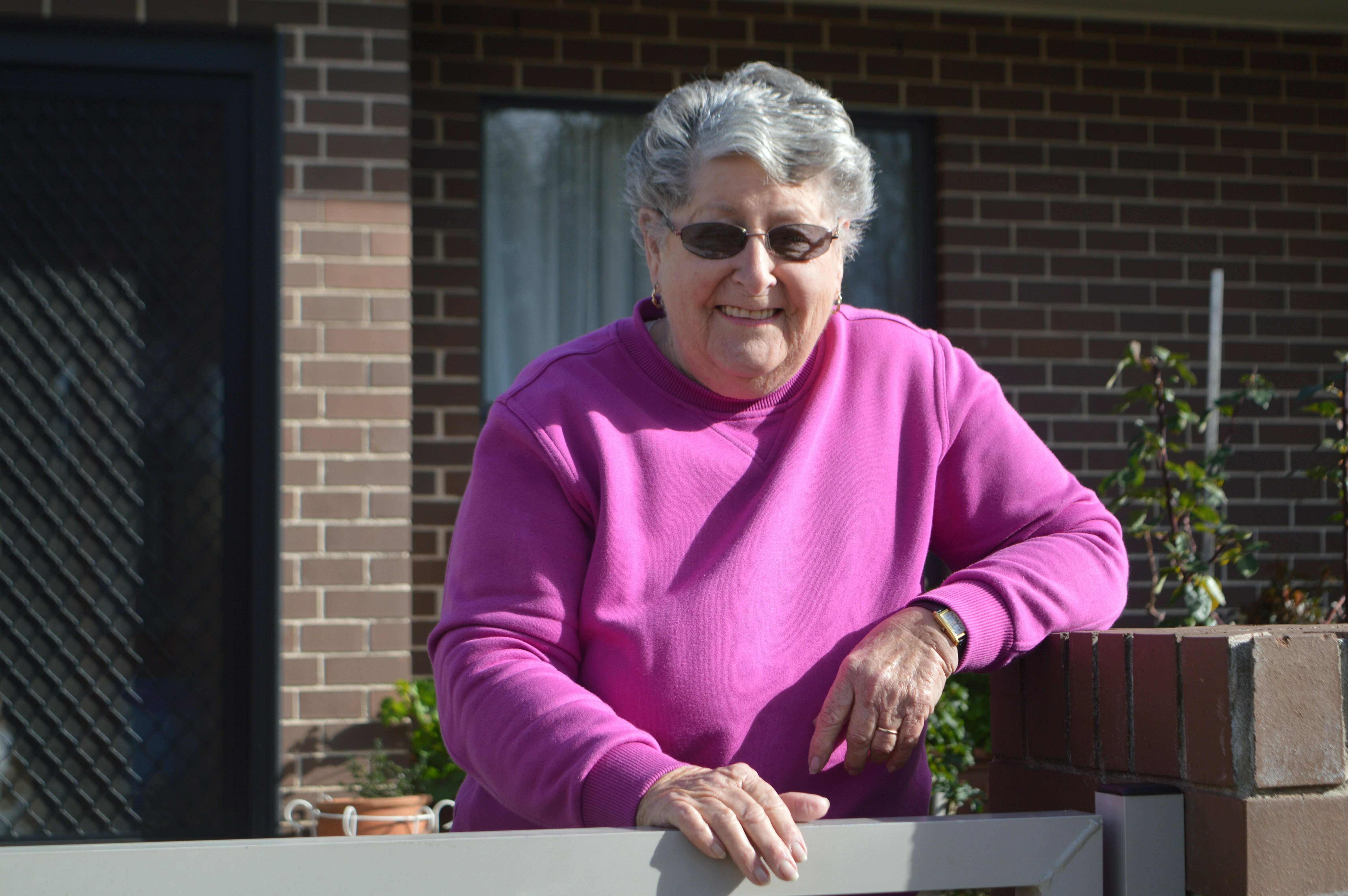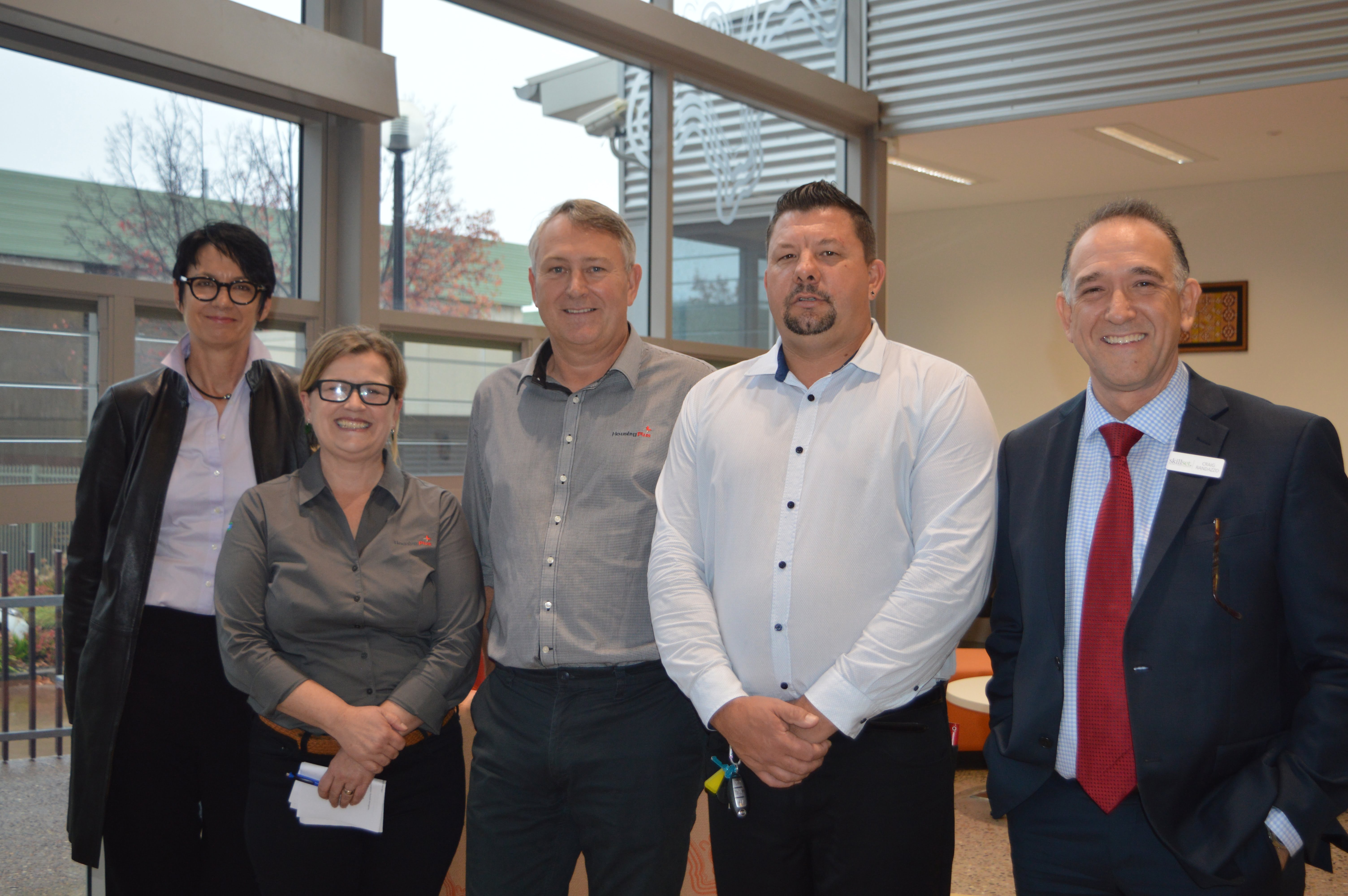
by Carrie Drage | Nov 21, 2019 | All
Community, health and research groups are calling on Energy Ministers to cut energy bills, reduce carbon emissions and create jobs by committing at the COAG Energy Council meeting to implement measures to substantially improve the energy efficiency of millions of existing homes.
Forty organisations have written to energy ministers asking them to not only endorse the work plan on the COAG agenda to progress energy efficiency measures for existing homes, but to also commit to implement the measures quickly, especially for the most vulnerable people in our society.
ACOSS CEO, Dr Cassandra Goldie, said “Millions of people are living in homes that are too cold in winter and too hot in summer and cost a fortune to run; people are sadly dying as a result.
“People on low incomes who spend on average more than 4 times their income on energy bills than high income earners, cannot afford to invest in energy efficiency measures and if they rent they have no choice.
“We absolutely want COAG to endorse the work plan to develop a rating tool for existing homes, national framework for mandated energy efficiency standards for rental properties, and explore funding options for social housing and low income home owners, said Dr Goldie, “but we also want to see a commitment that these measures will be prioritised and not left on a shelf.
“Acting on energy efficiency for people on low income is critical to tackling poverty and inequality as well as providing broader benefits for everyone, including job creation, economic stimulus and reduced carbon emissions.”
National Shelter Executive Officer, Adrian Pisarski, said “Renters, including those living in private and social housing, face the greatest barriers to improving energy efficiency.
“Renters can live in some of the worst housing and have little control over the energy efficiency of their homes. They either go without food and other essentials or they limit energy use to the detriment of their health, in some cases people end up homeless because they prioritise energy bills over rent.
Regionally based community housing provider, Housing Plus CEO David Fisher, said “We’ve seen the real benefits that energy efficiency measures can have on the quality of life of our tenants, especially elderly people, who too often will not turn on their heating or cooling for fear of the costs.
“We and other community housing providers lack necessary support to retrofit existing homes, which is where the need is great.
Brotherhood of St Laurence Executive Director, Conny Lenneberg said, “We’ve found the benefits for low-income households of installing energy efficient appliances like efficient hot water, heating and cooling are almost immediate – lower energy bills, with healthier homes and people. People with chronic health issues and those struggling to heat or cool their homes tend to benefit most from these upgrades.
“We need systemic investment to substantially upgrade homes for all residents on low incomes, whether they live in their own homes, or in social and community housing or rent privately, so that all benefit regardless of their financial circumstances,” said Ms Lenneberg.
Modelling for COAG Energy Council also found that if measures proposed in the work plan were introduced by 2022 in all jurisdictions, they could deliver a net present value (NPV) of $5 billion, reduce greenhouse gas emissions by 52.7 MtCO2-e and save 429.3 PJ of energy by 2050.
Renew CEO, Donna Luckman said “Cutting energy waste by improving the efficiency of our homes is one of the quickest and cheapest ways to reduce carbon emissions that is causing the climate crisis, with households contributing 11% of Australia’s emissions.
“More efficient homes will also save energy, reducing the need to invest in new energy generation and improve the reliability of the electricity grid, everyone benefits.”
Rob Murray-Leach, Head of Policy for the Energy Efficiency Council said “Helping households save energy will boost investment and job creation by the private sector. Recent research showed an ambitious energy efficiency strategy would create 120,000 jobs across Australia.”
Click here to read the open letter to COAG Energy Ministers.

by Carrie Drage | Nov 12, 2019 | All
Dear Editor,
Like many of your readers, three articles these past weeks particularly caught my eye. The first: “Cadia announces ‘hundreds of jobs’ to be created in $685 million expansion”; the second: “Rental forums to help property owners capitalise on Cadia mine expansion”: and the third: “Rental prices up six per cent with houses and units in short supply.” For the 30% of the Orange population, or some 4,000 households who rent their homes, this is important news.
As many readers will know, wage increases are not keeping pace with rent increases, and Orange is becoming increasingly unaffordable. At the last census in 2016, 11.9% of Orange renters were in rental stress; almost the same levels as in Sydney at 14.6%. Rental stress refers to households who are paying more than 30% of their income in housing costs. This percentage is highest amongst low to moderate income households.
The pressure on the rental market has been growing over the last few years for two main reasons: the loss of rental units to the short-term rental tourism market, such as Stayz or AirBnB, and the increased demand for rental properties from families who would normally purchase a property – but cannot because of rocketing property prices. This pressure may now be compounded by a mining expansion, where landlords will apparently be encouraged to capitalise on this growth.
This may have two immediate impacts: firstly, large numbers of families may face higher rents and have less to spend in the local economy, and secondly, the loss of properties as landlords seek to let their properties to higher waged mine workers. If these are properties currently being let to the tourism market there will be wider effects on tourism trade across the city.
Orange is a great city, with a strong sense of community and strong health, mining, government and tourism based economies. What makes Orange a great place for businesses is also having an impact on the ability of families to continue to afford to live in Orange. For low and moderate income households, having secure and affordable homes is a solid and necessary foundation for them to thrive, with the money left over after their rent is paid to meet the essentials and save for a deposit for their first owned home. What is needed to underpin the growth of Orange, maintain our tourism sector and avoid putting many families under more financial pressure, is to take the pressure off the rental sector.
Yours sincerely,
David Fisher

by Carrie Drage | Apr 23, 2019 | All
Housing Plus has presented Orange City Council with an innovative approach towards regional city residential expansion as the first planned development of a $30M investment towards social infrastructure in Orange, addressing the critical need for additional affordable and social housing.
With the lodging of a Development Application for ‘Fairview’ situated on the Forbes Road, Orange’s waiting list for affordable housing will take a major cut as Housing Plus becomes a key provider of new homes.
Housing Plus Project Director, Justin Cantelo, says, “The Housing Plus program is a new way to deliver affordable housing, by creating integrated neighbourhoods with a mix of affordable, social and private housing. This promotes vibrant and diverse communities through different types of housing and densities to meet the changing needs of the community.”
“This is a substantial investment for Housing Plus. Having worked in this field for over 30 years, Housing Plus has a proven track record in property management, and we manage and maintain our assets just like any other homeowner.”
The proposed development at 78 Forbes Road is architecturally designed and will be of a high quality construction that will complement the character of the local neighbourhood.
Justin says, “In the short-term, this project will create jobs in construction across Orange and, in the long-term, an increase in the number of affordable dwellings in Orange will deliver the stability people need to be able to stay in work or raise a family, whilst also providing economic growth for our city.”
“We reviewed the rental listings on Domain on Tuesday 9 April 2019 and there are currently only two rental properties available in Orange that meet the affordability criteria for a single person on the aged pension.”
With a 30-year history of providing client-centred tenancy and property management services to the Central West and Western regions of NSW, Housing Plus is a not-for-profit progressive social enterprise that re-invests all profits into improving social outcomes for individuals and communities in regional NSW.
A key feature of the properties is the provision of energy efficient measures to reduce the running costs of these homes into the future. Homes are designed according to the Livable Housing Design Guidelines’ silver standard, incorporating key easy living features to make homes more accessible for an ageing population.
All this ties into Orange City Council’s Community Strategic Plan, which states its commitment to working with ‘non-profit organisations to reduce the incidence of homelessness by supporting the need for affordable and social housing’.
Justin says, “As well as providing families with secure, affordable housing, Housing Plus will link tenants and household members with local services to help them work towards greater independence, such as engaging in training and employment opportunities, or increasing wellbeing for over 55s.”
“There is a particular focus on supporting vulnerable older women who may have found it difficult to secure housing in the past. Everyone at Housing Plus is excited about the opportunity to pave the way in the future of affordable housing.”
Community members are invited to view the plans and any enquiries can be directed to developments@housingplus.com.au or by telephoning Justin on 1800 603 300.

by Carrie Drage | Apr 11, 2019 | All
The region’s ageing population, in particular vulnerable older women, are set to benefit from a $75M investment by Housing Plus.
Housing Plus, a local, regionally based community housing provider, is delivering 220 new social and affordable homes across Orange, Dubbo and Bathurst in the next three years, with the first properties becoming available in October 2019.
There is already an acute shortage of affordable and social housing across the region. These new homes will come at a critical time when property prices are rising, and many are turning to renting. Currently, 1 in 3 Australians rent their home. Growth in the economy through mining developments, large infrastructure projects and the loss of rental properties to the tourism sector, puts pressure on an already limited supply of rental properties with rents rising.
David Fisher, CEO at Housing Plus, says, “We are delighted to be delivering one of the largest social and affordable housing programs the Central West region has seen for many years. This is a significant investment by Housing Plus in these cities and shows the commitment we have to supporting the local community and growth in the economy, as well as creating jobs in construction and services in the short term.”
Recent research by UNSW has estimated that some 5,500 new properties are needed across the Central West to meet the expected growth in population. The 2018 Rental Affordability Snapshot by Anglicare Australia reports that less than 5% of available houses are affordable and appropriate for a couple with no children receiving the age pension. Only 1% of properties are affordable for a single person on an aged pension.
As the baby-boomer generation reach their senior years, the waiting list for affordable and social housing is increasing and few current homes in the Central West are properly equipped to assist the increasing number of community members in need, according to Housing Plus CEO David Fisher.
Housing Plus has a 30-year history of providing customer-centred tenancy and property management services to the Central West and Western regions of NSW and has locally based teams in these three regional cities.
The properties are architecturally designed to meet the Livable Housing Design Guidelines, local planning guidelines, and will be energy efficient through the incorporation of draught proofing, solar panels and split systems, which reduce the running costs for these homes.

by Carrie Drage | Mar 6, 2019 | All
Housing Plus – in partnership with Skillset and Joblink Plus – is creating opportunities for social housing clients in Western and Far West NSW to improve their employment situation and leave social housing under a ground breaking new service, Opportunity Pathways.
Opportunity Pathways is a new program initiative under Future Directions for Social Housing in NSW, the NSW Government’s 10-year vision for social housing, which aims to transform the social housing system and break the cycle of disadvantage.
David Fisher, CEO at Housing Plus, says, “We are delighted to be awarded the Opportunity Pathways program to support social housing tenants to find employment across Western and Far West NSW. This will provide new opportunities for customers and will help to improve many lives.”
“As both a regional community housing provider and a support service provider, we know only too well the challenges and barriers many social housing customers face in gaining and sustaining employment and housing independence.”
“Our partners, Skillset and Joblink Plus are a perfect fit for Housing Plus – like us, they are both not-for-profits who are committed to supporting disadvantaged clients living in regional communities.”
“Both organisations have some excellent partnerships with major employers in the region and will be able to offer social housing customers a range of pathways to sustainable employment.”
Opportunity Pathways is voluntary and will be trialled in three locations in Western NSW – Orange, Bathurst and Dubbo – and Broken Hill in the Far West. Clients who agree to engage in the program will receive practical assistance, training and work opportunities to help them secure a job, work more hours or improve their employment situation.
Services include training, workshops, one-on-one support, case management and wrap around support, coaching and mentoring, work experience placements, job placements and work retention support.
Christine Shewry, CEO at Joblink Plus, says, “It’s difficult to overstate the role of a meaningful, sustainable job in achieving housing independence. It’s imperative.”
“Joblink Plus is delighted to be working so closely with our friends at Housing Plus and Skillset to deliver this important service. Our organisations have a shared commitment to making life better for families in Western and Far West NSW and we’re confident that in partnership with government and community, our commitment will deliver great outcomes.”
Craig Randazzo, CEO at Skillset, says, “Skillset is proud to be partnering with Housing Plus and Joblink Plus to offer Opportunity Pathways. The program will provide people living in social housing in Western and Far West NSW with the support, tools and opportunities to make a positive difference in their lives. Through this program, Skillset is able to offer effective employment and skills development programs, such as the Skillset Workforce Skills4Trade and Youth Connect programs. We will also utilise our extensive relationships with over 180 employers to maximise employment pathways to help individuals take that next step to becoming more independent and open themselves up to greater opportunities.”
For more information, see the Central Western Daily article about Opportunity Pathways here.
Click here to find out how you can participate in Opportunity Pathways or telephone 1800 940 409.





